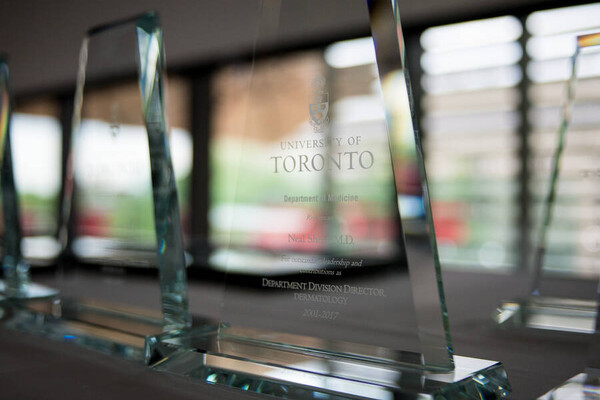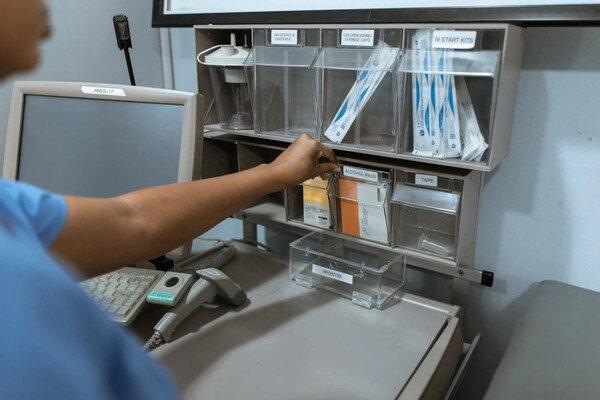Main Second Level Navigation
- Welcome
- Why Toronto?
- History of the Department
- Vision & Strategic Priorities
- Our Leadership
- Our Support Staff
- Location & Contact
- Departmental Committees
- Department of Medicine Prizes & Awards
- Department of Medicine Resident Awards
- Department of Medicine: Self-Study Report (2013 - 2018)
- Department of Medicine: Self-Study Report (2018 - 2023)
- Communication Resources
- News
- Events
Dr. David Osoba

Former colleagues of David Osoba at Princess Margaret and Sunnybrook Cancer Centres and at the Canadian Clinical Trials Group (CCTG) in Kingston, were sad to learn of his death on December 13, 2020.
After his medical school training at the University of Alberta and residency and fellowship in hematology in Vancouver, David was supported by a McEachern Fellowship of the Canadian Cancer Society to spend a year at the Chester Beatty Research Institute in London, UK, under the leadership of Dr. JFAP Miller and Professor Sir Alexander Haddow, which cemented his interest in the growing field of tumour immunology. After three years back in Vancouver as a staff hematologist, David was recruited to Princess Margaret Hospital (PMH) and the University of Toronto in 1966, where he pursued his clinical and research interests in chemotherapy and immunology until 1977.
Kathy Pritchard first knew David in 1973-1974 when she was a melanoma fellow. He was an outstandingly supportive mentor and teacher who gave graded responsibility together with appropriate guidance. She recalls one embarrassing moment when she gave what she thought was a good first draft of a paper to David for review and he handed it back to her promptly, reporting that the tables and the text did not match. Kathy was mortified and learnt a lesson never to be repeated! The immunotherapeutic approaches she sought with David and others for melanoma, which seemed so tantalizingly close then from animal data, took another 40 years to materialize in the clinic. Ian Tannock undertook his residency training in medical oncology at PMH from 1976-1978 and remembers David at this time as one of his mentors, benefitting from his critical and enquiring mind, and from lively discussions about both the management of patients and a common interest in translational science.
In 1978, David moved to the Sunnybrook Medical Centre where he became Head of the Division of Oncology, later at the Odette Cancer Centre. As the first head of medical oncology at Sunnybrook, David pioneered innovative care models that included paired coverage by medical oncologists and participation in clinical trials recruitment by all clinical oncology nurses. He remained in that position until the end of 1985, when he encouraged Kathy Pritchard to interview for that position, and eventually she was appointed to succeed him in 1987. He was a challenging act to follow, but they shared a continued friendship, with a common interest both in oncology and in Bach and folk music, over many years.
In 1981 David married Leslie Bradley, a head nurse at Sunnybrook, and in 1986 they moved to Vancouver. Not only did David enjoy good personal quality of life from being with Leslie among the attractions of Vancouver, but his research interests moved to the assessment of quality of life in people with cancer.
David was a pioneer in emphasising the logic that if trials were being done to improve palliation for people with advanced cancer, and the ability to extend survival was minimal, then the important question was whether we could improve their quality of survival. David became a leader in establishing quality of life in clinical trials run by the CCTG, under the leadership of Joe Pater, and was the inaugural chair of the CCTG Quality of Life Committee.
In another example, Ian Tannock worked with other Canadian investigators to initiate a randomised trial of gentle chemotherapy (mitoxantrone with prednisone) versus prednisone alone for men with painful metastases from prostate cancer, and David played a major role in establishing quality of life endpoints for this study. The chemotherapy treatment was more effective for controlling pain and improving quality of life and became a global standard of treatment for several years. David’s work left a legacy that positioned CCTG as a major contributor to understanding both the methodology of measuring health-related quality of life as well as the impact of cancer interventions on patients' quality of life.
David held various leadership positions at the BC Cancer Agency until his retirement in 1998. He continued to lead trials evaluating symptom control and quality of life with the CCTG, collaborated with other international organisations such as the European Organisation for Research and Treatment of Cancer (EORTC), and was an active member and served as president of the International Society for Quality of Life. Even after his retirement from active clinical practice and research, David continued to consult on quality of life issues, and many patients undergoing treatment today benefit indirectly from his work.
Prepared by Drs. Kathleen Pritchard, Joseph Pater, and Ian Tannock


